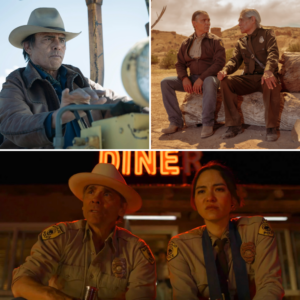Released in 2011, Carnage stands out as a unique black comedy film that marks one of the rare collaborations between two acclaimed actresses, Jodie Foster and Kate Winslet. Directed by Roman Polanski and adapted from Yasmina Reza’s Tony Award-winning play Le Dieu du carnage, the movie brings together an impressive ensemble cast, including Christoph Waltz and John C. Reilly, for a biting exploration of human behavior. Premiering at the Venice Film Festival on September 1, 2011, and hitting theaters on November 18, 2011, Carnage offers a confined, theatrical narrative that unfolds over 79 minutes, showcasing the talents of Foster and Winslet in a way that highlights their versatility. This article delves into the film’s content and examines the standout performances of Foster and Winslet, shedding light on their seldom-seen partnership and its impact.
Content: A Dark Comedy of Escalating Tensions
Carnage is set in a stylish Brooklyn apartment, where two sets of parents convene to address a playground altercation between their 11-year-old sons. The story begins with a deceptively calm scene of children playing, which quickly gives way to the central conflict: Zachary Cowan (Eliot Berger), son of Alan (Christoph Waltz) and Nancy Cowan (Kate Winslet), has struck Ethan Longstreet (Lexie Kendrick) with a stick, causing Ethan, son of Penelope (Jodie Foster) and Michael Longstreet (John C. Reilly), to lose two teeth. The meeting, intended as a civilized discussion, spirals into chaos as the adults’ facades crumble.
The narrative unfolds in real-time, capturing the Longstreets’ initial hospitality—offering coffee and clafoutis—contrasted by the Cowans’ apparent readiness to leave. However, repeated interruptions, including Alan’s incessant phone calls about a pharmaceutical lawsuit and Nancy’s sudden vomiting on Penelope’s art books, derail any progress. What starts as polite negotiation devolves into a series of verbal sparring matches, exposing the couples’ personal flaws and marital tensions. Penelope, a self-righteous writer obsessed with African humanitarian issues, clashes with Michael, a laid-back salesman with a hidden rough edge. Meanwhile, Nancy, an investment broker, and Alan, a detached lawyer, reveal their own contradictions, from Nancy’s repressed anger to Alan’s corporate cynicism.
The film’s single-location setting amplifies its theatrical roots, with Polanski’s direction using tight shots and sharp angles to mirror the characters’ growing confinement. The humor arises from absurd moments—like the destruction of a prized tulip arrangement and the recurring hamster subplot—while the dialogue, co-written by Reza and Polanski, drips with dark wit. Themes of parental hypocrisy, class dynamics, and the fragility of civility emerge, though the plot’s predictability has drawn criticism. With a 70% Rotten Tomatoes rating and a 61/100 Metacritic score, Carnage is praised for its performances but noted for its stage-bound feel, grossing $27.6 million against a $20 million budget.
The story peaks with the adults’ regression to childish behavior—name-calling, tantrums, and even a brief escape attempt—before a resolution that sees the couples part ways, leaving their children’s conflict unresolved. The final image of the boys playing peacefully, unaware of the “carnage” upstairs, adds an ironic twist, suggesting the adults’ immaturity outstrips the kids’. This blend of satire and discomfort makes Carnage a compelling, if niche, exploration of human nature.
Jodie Foster’s Performance: A Frenzied Outburst of Righteousness
Jodie Foster’s portrayal of Penelope Longstreet is a tour de force that showcases her ability to channel intensity into comedy. Known for dramatic roles in The Silence of the Lambs and Taxi Driver, Foster, at 48, embraced the challenge of playing a liberal idealist whose veneer of control unravels spectacularly. Penelope is introduced as a cultured, earnest writer, her apartment a shrine to her values—art books and African artifacts abound. Foster infuses her with a brittle energy, her clipped delivery and wide-eyed sincerity setting the stage for her descent.
As the meeting deteriorates, Foster’s performance escalates with physical and emotional abandon. Her reaction to Nancy’s vomiting—screaming and flailing as she tries to salvage her books—marks a pivotal shift, drawing laughs while revealing Penelope’s fragility. Foster’s signature intensity shines in her confrontations with Alan, where she unleashes a torrent of indignation, accusing him of corporate amorality. A standout moment comes when she smashes a coconut in frustration, a gesture that blends humor with desperation, earning her a Golden Globe nomination for Best Actress in a Musical or Comedy.
Critics have mixed views on her approach. The Guardian’s Philip French called it her “first bad performance,” critiquing her “thin-lipped” and “over-the-top” style as forced, while Roger Ebert praised her “merciless lampooning” of her own intelligence. Foster herself has reflected on the role’s demands, telling The Dove Foundation in 2011 that she relished the chance to “go wild” after years of restraint. Her chemistry with Reilly, who plays her exasperated husband, adds depth, their bickering exposing a marriage strained by her idealism. Foster’s willingness to push boundaries—both comedic and dramatic—makes Penelope a memorable, if polarizing, character.
Kate Winslet’s Performance: A Subtle Descent into Chaos
Kate Winslet, at 35, brings a different flavor as Nancy Cowan, complementing Foster’s frenetic energy with a more restrained, yet equally transformative, performance. Known for Titanic and Eternal Sunshine of the Spotless Mind, Winslet plays Nancy as a poised investment broker whose composure cracks under pressure. Her initial politeness—offering apologies and adjusting her designer outfit—contrasts with her later outbursts, making her unraveling a slow burn.
Winslet’s defining moment arrives early when she vomits on Penelope’s books, a spontaneous act that shifts the dynamic. Her embarrassed yet defiant reaction, followed by a sharp retort about the tulips, showcases her ability to blend humor with vulnerability. As the argument intensifies, Winslet reveals Nancy’s suppressed rage, particularly in a heated exchange with Penelope, where she accuses her of sanctimony. Her chemistry with Waltz, whose Alan remains aloof, highlights their marital disconnect, with Winslet’s physicality—fidgeting and pacing—adding texture.
Critics lauded her subtlety. Variety noted her “infectiously inventive” portrayal, earning her a Golden Globe nomination alongside Foster, while The Hollywood Reporter praised her ability to “let her guard down” convincingly. Some, like The New York Times, felt her role leaned too heavily on physical gags, but Winslet’s control over Nancy’s arc—moving from restraint to rebellion—earned her a Satellite Award nomination. In a 2011 Playbill interview, she described the role as a “delicate balance,” reflecting her effort to avoid caricature. Her performance anchors the film’s second half, making Nancy’s breakdown a poignant counterpoint to Foster’s explosion.
The Rare Collaboration: A Clash of Strengths
The pairing of Foster and Winslet is a rare treat, their only on-screen collaboration to date. Both actresses, with multiple Oscars between them, bring distinct energies—Foster’s controlled intensity versus Winslet’s nuanced restraint—creating a dynamic tension that drives the film. Their scenes together, particularly the book-vomiting incident, are electric, with Foster’s outrage clashing against Winslet’s mortification. This interplay mirrors the script’s theme of opposites attracting conflict, amplifying the comedy.
The collaboration was born from Polanski’s vision to adapt Reza’s play, filmed in Paris despite its Brooklyn setting due to his legal constraints. Foster and Winslet, along with Waltz and Reilly, rehearsed extensively, fostering a rapport that Polanski leveraged for improvisation. Foster’s experience directing (Little Man Tate) influenced her assertive approach, while Winslet’s theatrical background (Sense and Sensibility) shaped her stage-to-screen transition. Their mutual respect, evident in post-release interviews, underscores a partnership that enriched the film, though its stage origins limited its scope.
Reception and Legacy
Carnage debuted to positive reviews, with an 70% Rotten Tomatoes consensus praising Polanski’s direction and the cast’s “assured performances.” However, its $27.6 million box office and mixed critical notes—some calling it “flowcharty”—suggest it didn’t fully transcend its theatrical roots. Foster and Winslet’s nominations at the 69th Golden Globes highlighted their impact, though the film’s niche appeal kept it from broader acclaim. Its legacy lies in showcasing four actors at their peak, with Foster and Winslet’s rare duet a highlight for fans.
Conclusion
Carnage is a sharp, dark comedy that thrives on its content—a single-room dissection of parental hypocrisy—and the exceptional performances of Jodie Foster and Kate Winslet. Foster’s frenzied Penelope and Winslet’s unraveling Nancy create a compelling contrast, their rare collaboration adding depth to Polanski’s vision. While the film’s stage-bound nature divides opinion, their portrayals elevate it into a memorable exploration of human flaws, making it a noteworthy chapter in their storied careers.





